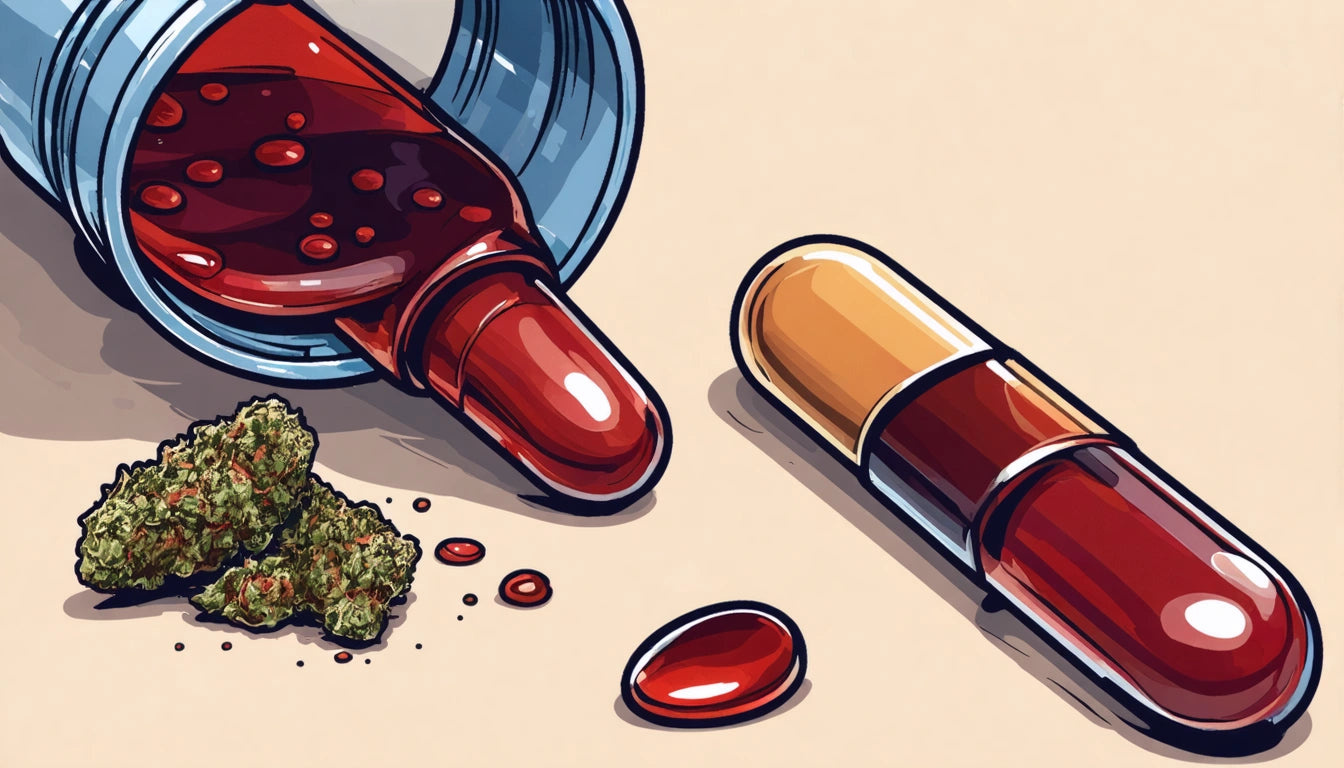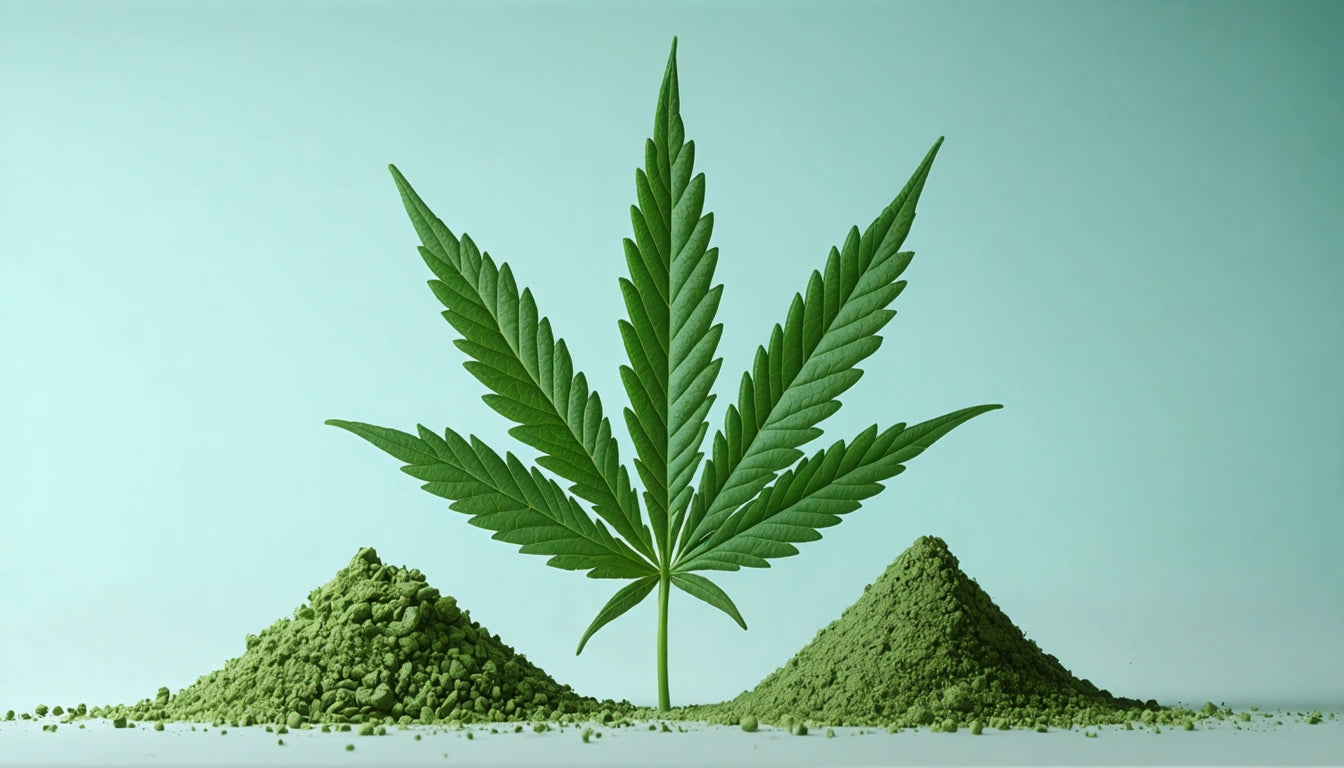Table of Contents
- Blood Test Detection Basics: How Cannabis Shows Up
- Detection Windows: How Long Weed Stays in Your Blood
- Factors Affecting Detection: Why Results Vary
- Blood vs. Other Testing Methods: Comparing Effectiveness
- Medical Testing Considerations: When Standard Blood Work Detects THC
- Navigating Cannabis Testing: Knowledge for Informed Decisions
Can Blood Tests Detect Weed?
Blood tests can indeed detect the presence of cannabis in your system. Unlike some testing myths, blood testing is a reliable method for identifying recent marijuana use through the detection of THC (tetrahydrocannabinol) and its metabolites. Understanding how these tests work and their detection windows is crucial for consumers in various situations.
Blood Test Detection Basics: How Cannabis Shows Up
When you consume cannabis, THC rapidly enters your bloodstream. Blood tests specifically look for both active THC and its metabolites, primarily THC-COOH. These tests are particularly effective at determining recent use, making them valuable for situations requiring evidence of active impairment.
According to research on cannabis detection in blood tests, the testing process typically involves:
- Drawing a blood sample from a vein
- Laboratory analysis using immunoassay screening
- Confirmation testing with mass spectrometry for positive screens
- Measuring THC concentration in nanograms per milliliter (ng/mL)
Most standard blood tests have a cutoff level of 1-5 ng/mL, though this threshold can vary depending on the testing facility and purpose.
Detection Windows: How Long Weed Stays in Your Blood
The detection window for cannabis in blood is relatively short compared to other testing methods. THC levels peak rapidly during or immediately after smoking, then decline quickly as the compound is distributed to tissues and metabolized by the liver.
For occasional users (less than weekly consumption), cannabis may be detectable in blood for approximately:
- 3-12 hours after smoking
- Up to 24 hours in some cases
For regular or heavy users, detection windows extend significantly:
- Up to 2-7 days after last use
- Potentially longer for daily, heavy consumers
This extended window occurs because THC accumulates in fat tissues with repeated use and slowly releases back into the bloodstream over time.
Factors Affecting Detection: Why Results Vary
Several variables influence how long cannabis remains detectable in blood:
Consumption Method
Smoking or vaping results in rapid THC blood level spikes that decline quickly. Edibles produce a delayed but sometimes longer detection window as THC is processed through the digestive system before entering the bloodstream.
Metabolism and Body Composition
Individual metabolic rates and body fat percentage significantly impact how quickly THC clears from the system. Those with faster metabolisms or lower body fat may process and eliminate THC more rapidly.
Potency and Quantity
Higher-potency products and larger consumption amounts introduce more THC into the system, potentially extending detection windows. When consumers use precise measurement tools for dosing their cannabis, they can better predict potential detection timeframes based on known quantities consumed.
Blood vs. Other Testing Methods: Comparing Effectiveness
Blood testing offers specific advantages and limitations compared to other cannabis detection methods:
- Urine tests: Detect non-psychoactive metabolites for much longer periods (up to 30+ days for heavy users) but cannot reliably indicate current impairment
- Saliva tests: Similar detection window to blood (24-72 hours) and more convenient to administer
- Hair tests: Can detect use for up to 90 days but cannot determine recent use or impairment
Blood testing is generally considered the most accurate method for determining recent cannabis consumption and potential impairment, which is why it's often used in situations like driving under the influence cases. However, understanding these different testing approaches helps consumers make informed decisions.
Medical Testing Considerations: When Standard Blood Work Detects THC
Many people wonder if routine medical blood work will reveal cannabis use. In most cases, standard medical blood panels do not screen for THC unless specifically ordered. However, there are important exceptions:
- Pre-employment physicals that include drug screening
- Insurance examinations
- Certain specialized medical situations
It's worth noting that cannabis can affect certain blood test results beyond direct THC detection. For example:
- Liver function tests may show temporary elevations
- Blood glucose levels might be affected
- Certain hormone tests could be influenced
For medical testing, it's generally advisable to inform your healthcare provider about cannabis use to ensure accurate interpretation of results.
Navigating Cannabis Testing: Knowledge for Informed Decisions
Understanding how blood tests detect cannabis empowers consumers to make informed choices. Whether facing employment screening, legal situations, or medical testing, knowing detection windows and influential factors provides valuable context.
For those concerned about potential testing, consider these practical approaches:
- Be aware of your consumption patterns and how they relate to detection windows
- Understand the specific testing methods likely to be used in your situation
- Recognize that many variables affect detection, including individual metabolism
- When in doubt, consult with healthcare or legal professionals about specific concerns
As cannabis legalization expands, testing protocols continue to evolve. Staying informed about current detection methods and their limitations helps navigate the complex landscape of cannabis testing with greater confidence.











Leave a comment
All comments are moderated before being published.
This site is protected by hCaptcha and the hCaptcha Privacy Policy and Terms of Service apply.